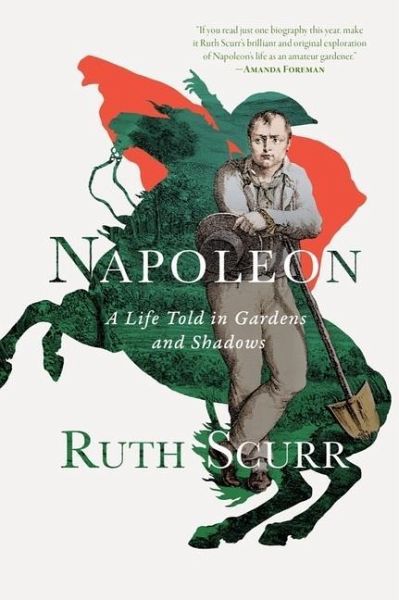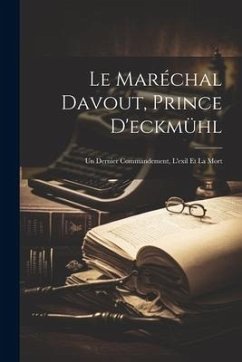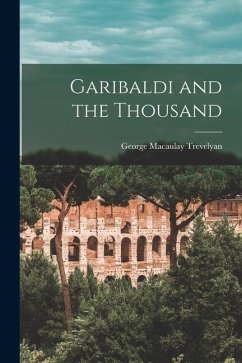
Napoleon: A Life Told in Gardens and Shadows
Versandkostenfrei!
Versandfertig in über 4 Wochen
15,99 €
inkl. MwSt.

PAYBACK Punkte
8 °P sammeln!
"How should one envisage this subject? With a great pomp of words, or with simplicity?" -Charlotte Brontë, "The Death of Napoleon" The most celebrated general in history, Napoleon Bonaparte (1769-1821) has for centuries attracted eminent male writers. Since Thomas Carlyle first christened him "our last Great Man," regiments of biographers have marched across the same territory, weighing campaigns and conflicts, military tactics and power politics. Yet in all this time, no definitive portrait of Napoleon has endured, and a mere handful of women have written his biography-a fact that surely wou...
"How should one envisage this subject? With a great pomp of words, or with simplicity?" -Charlotte Brontë, "The Death of Napoleon" The most celebrated general in history, Napoleon Bonaparte (1769-1821) has for centuries attracted eminent male writers. Since Thomas Carlyle first christened him "our last Great Man," regiments of biographers have marched across the same territory, weighing campaigns and conflicts, military tactics and power politics. Yet in all this time, no definitive portrait of Napoleon has endured, and a mere handful of women have written his biography-a fact that surely would have pleased him. With Napoleon, Ruth Scurr, one of our most eloquent and original historians, emphatically rejects the shibboleth of the "Great Man" theory of history, instead following the dramatic trajectory of Napoleon's life through gardens, parks, and forests. As Scurr reveals, gardening was the first and last love of Napoleon, offering him a retreat from the manifold frustrations of war and politics. Gardens were, at the same time, a mirror image to the battlefields on which he fought, discrete settings in which terrain and weather were as important as they were in combat, but for creative rather than destructive purposes. Drawing on a wealth of contemporary and historical scholarship, and taking us from his early days at the military school in Brienne-le-Château through his canny seizure of power and eventual exile, Napoleon frames the general's story through the green spaces he cultivated. Amid Corsican olive groves, ornate menageries in Paris, and lone garden plots on the island of Saint Helena, Scurr introduces a diverse cast of scientists, architects, family members, and gardeners, all of whom stood in the shadows of Napoleon's meteoric rise and fall. Building a cumulative panorama, she offers indelible portraits of Augustin Bon Joseph de Robespierre, the younger brother of Maximilien Robespierre, who used his position to advance Napoleon's career; Marianne Peusol, the fourteen-year-old girl manipulated into a Christmas-Eve assassination attempt on Napoleon that resulted in her death; and Emmanuel, comte de Las Cases, the atlas maker to whom Napoleon dictated his memoirs. As Scurr contends, Napoleon's dealings with these people offer unusual and unguarded opportunities to see how he grafted a new empire onto the remnants of the ancien régime and the French Revolution. Epic in scale and novelistic in its detail, Napoleon, with stunning illustrations, is a work of revelatory range and depth, revealing the contours of the general's personality and power as no conventional biography can.












